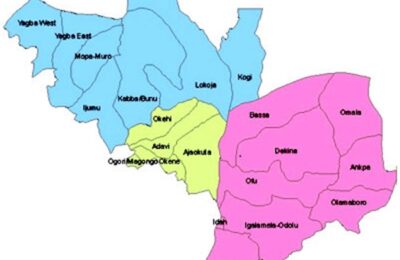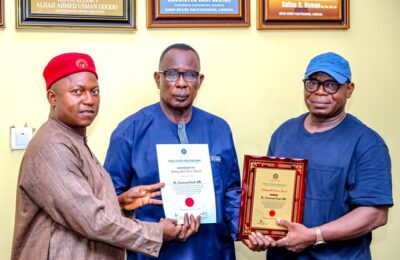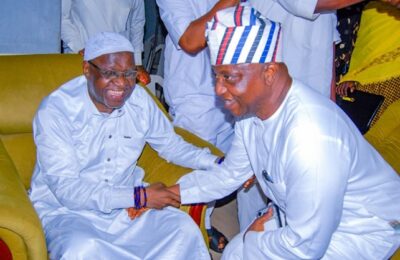The Igala people once held immense political influence in Kogi State, shaping its governance for decades. They were not merely participants in governance; they were architects of power. Today, however, Igala’s dominance has waned, leaving many to wonder how a people who once held the reins of leadership now struggle for relevance. While disunity is often cited as the primary cause of this decline, a deeper examination reveals a complex interplay of internal betrayals, external manipulations, non-inclusive government, and systemic failures that have contributed to this unfortunate reality.
Critics, particularly on social media, have accused me of unfairly criticizing or name-calling the Igala people in my previous articles rather than offering a solution-based approach. One such critic wrote:
“You see the negative article you wrote about the Igala on Kogi Reports? You are guilty of the same crime you accuse other Igala people of. It seems you enjoy abusing, attacking, and defaming others while claiming to convey a message. The content of your article is no different from the accusations you have made against others. It was filled with degrading, condescending, and hateful remarks, lacking any real substance…”
While I welcome constructive criticism from discerning minds, it is important to distinguish between critique and insult. My intention was never to degrade my Igala people but to provoke a much-needed conversation and set an agenda for the future of Igala leadership. As a Chinese proverb says, “Deep waters are silent; the wise do not speak.” Solutions are best discussed in town hall meetings, not in this space. Ignoring these hard truths will only perpetuate the cycle of decline in Igala politics. Let’s not forget that it was our leaders who traded our secrets for the allure of beautiful Egbira women. Otherwise, our farmers of old would not have become our leaders today.
The previous Kogi gubernatorial election exposed three painful realities. First, the so-called unity displayed by some Igala people was superficial while others tried their best. Sadly, the election was hijacked in an unprecedented manner, yet many Igala elites remained passive because they had cultivated, empowered, and released the very monster that now fights them. Was Yahaya Bello not a product of the Power tuzzles and embarrassment between Alhaji Ibrahim Idris and Prince Abubakar Audu?
Practically in all Igalaland, qualified voters who came out to vote in the last election refused to carry out all forms of electoral malpractices but depended on INEC to deliver credible results, forgetting that some Igalas were planted to divide our votes while others where working as informants to the incumbent governor at the time, and even the Resident Electoral Commissioners were planted by the APC-led administration. Secondly, those who once chanted “Muri” (nickname of Muritala Yakubu Ajaka, erstwhile SDP gubernatorial candidate) or “no one!” have now switched allegiance, singing praises to the APC-led administration. This shift reveals that their loyalty was driven not by a genuine commitment to Igala’s progress but by self-interest, mockery, and political opportunism. Third, a significant percentage of those who supported Muri Ajaka did so primarily for financial incentives, reducing the struggle for Igala emancipation to a transactional affair—money politics.
Until political engagement shifts from financial gratification to passionate and principled advocacy, true progress will remain elusive. An Igala proverb says, “Eluche ki di’be fu nwu k’Okpa, Okpa ki di ibe fuwn bi”—meaning, “A farmer must use his wisdom to cultivate the Barbara nut, just as the seed must rely on its own potential to produce offspring.”
To reclaim lost influence, the Igala must establish a robust Inter-party Conflict and Resolution Committee to accommodate politicians and stakeholders committed to positive change. This committee should reconcile conflicts of interest, bridge political factions, prevent betrayal, and ensure accountability among leaders, especially aspiring ones. Moreover, the Igala diaspora must go beyond social media activism and invest in grassroots development, education, and vocational training for Bassa and Igala youth.
The Bassa people are like a cow’s tail—small but inseparable, constantly in motion, and undeniably useful. They must not be excluded from the helm of Igala affairs. Their unwavering loyalty and resilience have played an integral role in the socio-political fabric of Kogi State. Any vision for Igala political revival that neglects the Bassa people is like a body attempting to function without a spine. Their inclusion is not merely a political necessity but a moral imperative for unity and progress.
This will answer the trending question, “Who you help?” as popularized by Ambassador Tony Ogah. Without a well-informed and economically empowered youth, the political landscape will remain dominated by self-serving elites and career politicians—precisely the kind of leadership that hinders genuine democratic progress at home.
Another critical issue is the commercialization of politics. It is disheartening to see politicians reducing their campaign promises to handing out packets of salt, cubes of Maggi, and a few cups of rice. The Igala people must in once voice demand substantial commitments—schools, hospitals, roads, and business investments—before lending their supports to any candidate. Power is never given; it is taken. If the Igala continue to treat elections as a temporary feast rather than a long-term strategy, they will remain political beggars in their own land.
The absence of groomed young leaders with the courage to challenge the status quo is another major setback. Putin of Russia was raised from childhood to become President. We only have leaders without human legacies. Instead, the political arena is dominated by individuals who view governance as a means for personal gain and enrichment. Identifying and supporting young, principled leaders is crucial. The Igala need visionaries who will prioritize development over personal ambition.
Furthermore, personality politics must be discouraged. Leadership should not be based on friendship, tribal affiliation, or religious sentiment but on competence, vision, and a track record of service. Until meritocracy replaces favouritism, Igalaland will continue to suffer from ineffective leadership.
Cultural and religious institutions also have a vital role to play in fostering unity. Festivals such as the Italo Festival should be reinvigorated, rebranded, and strengthened as platforms for communal bonding, free speech, and solidarity. It should not be a gathering of shrine worshippers but a forum for illustrious sons and daughters to discuss the advancement of the Igala nation. I guess Professor F.S. Idachaba died with Igala Education Submit because we no longer here about it.
Again, our religious leaders must use their influence to preach unity and collective progress. Faith, when channeled correctly, can serve as a powerful tool for reconciliation and growth.
Okura State must be achieved, and no part of Igala land should be ceded like the Bakassi Peninsula. The land of our ancestors is not a bargaining chip for political convenience. To surrender an inch of Igala soil is to erase a chapter of our history, one that must be preserved for future generations. The dream of Okura State is not an illusion but a necessity for political and economic self-determination. The Igala people must rise beyond political servitude and claim their rightful place.
The era of complaints is over. It is time for decisive action. The Igala must choose whether to remain beggars in a land they once ruled or rise and reclaim their rightful place. The destiny of the Igala people lies in their hands. The choice is clear: unite, strategize, and reclaim power—or remain divided and continue to be ruled by others.
– Inah Boniface Ocholi writes from Ayah – Igalamela/Odolu LGA, Kogi state.
08152094428 (SMS Only)




